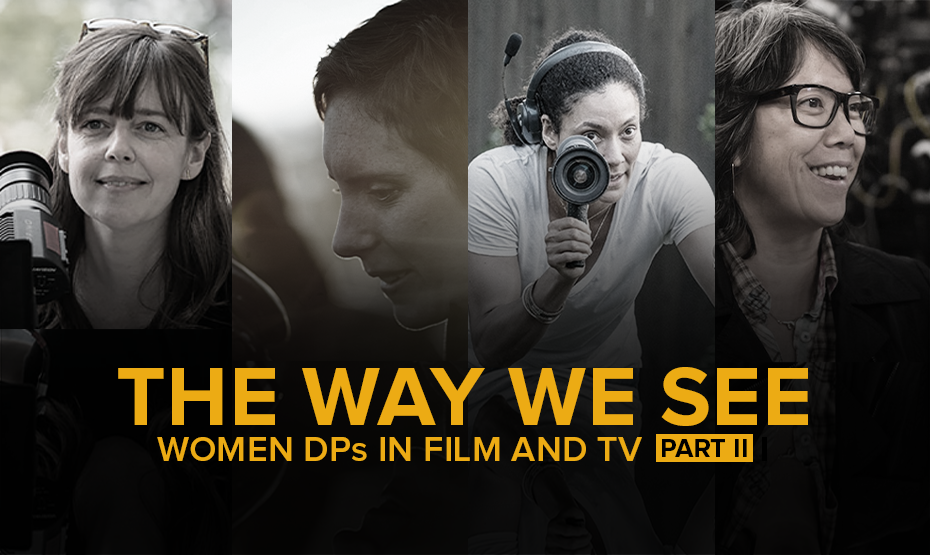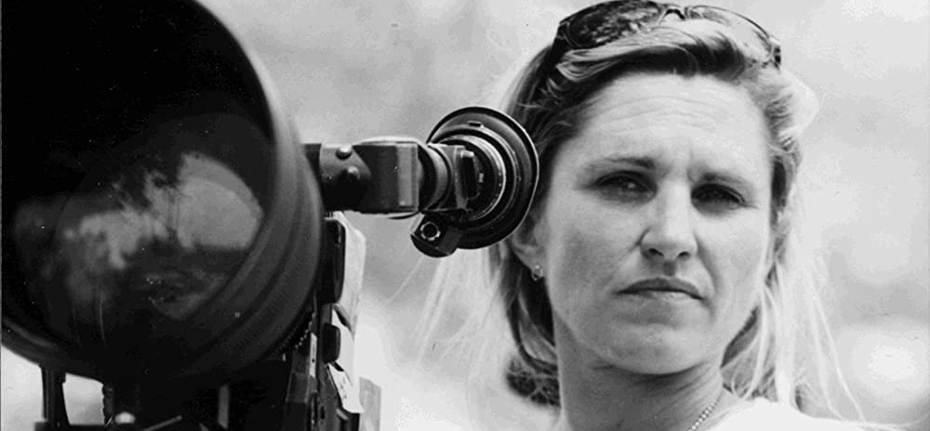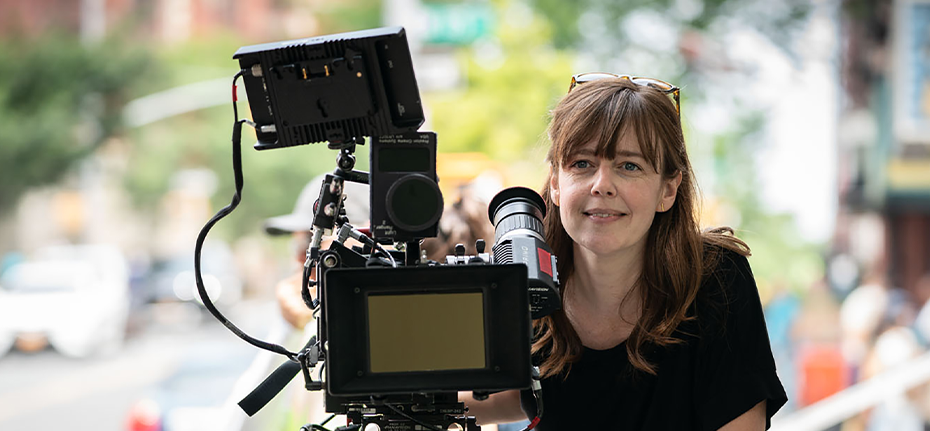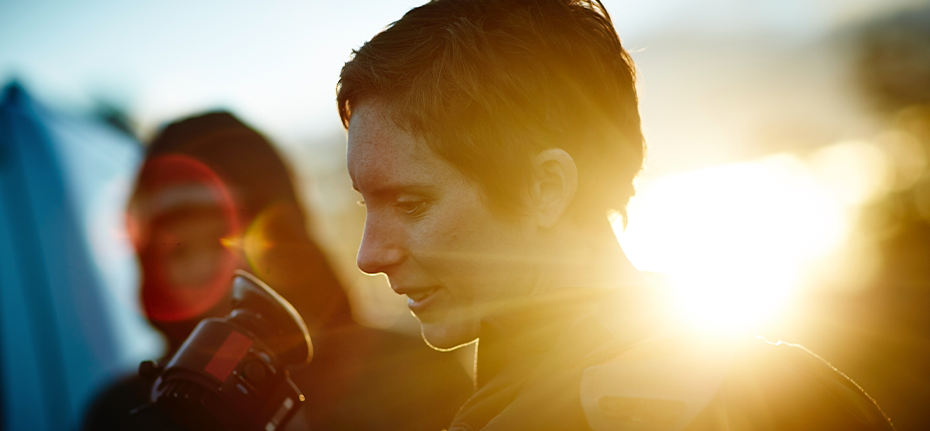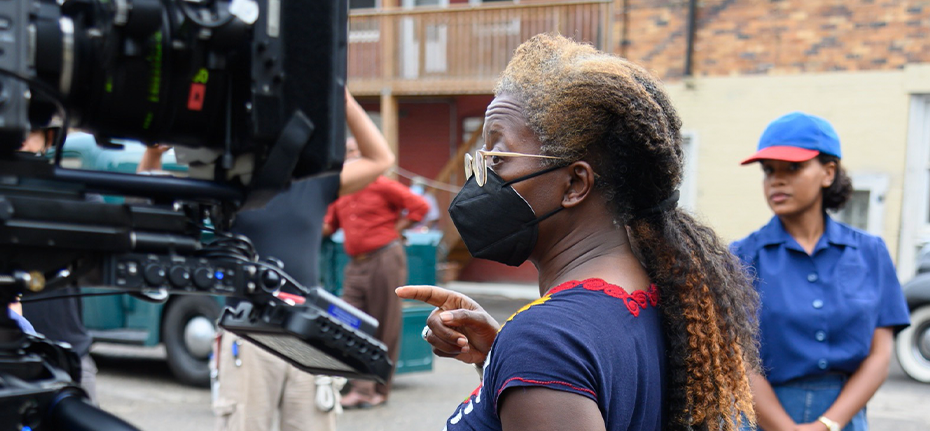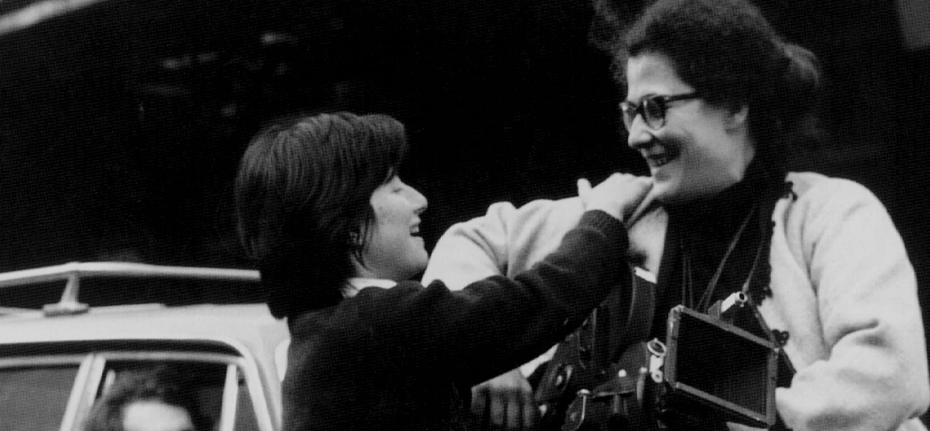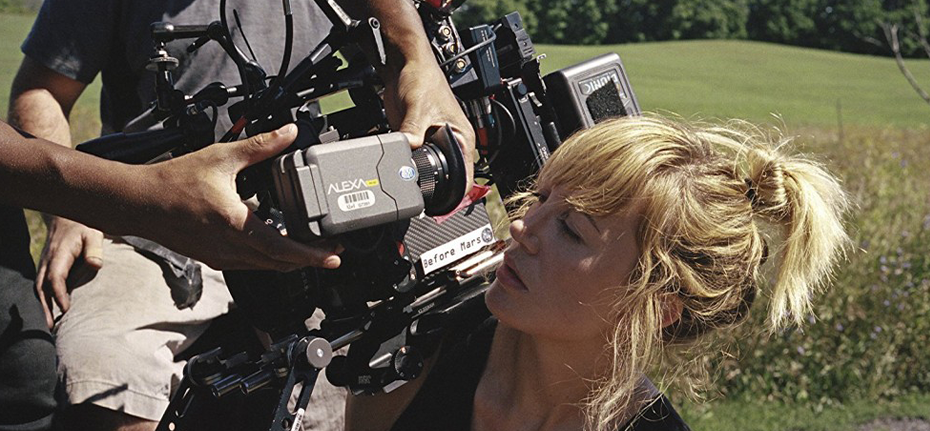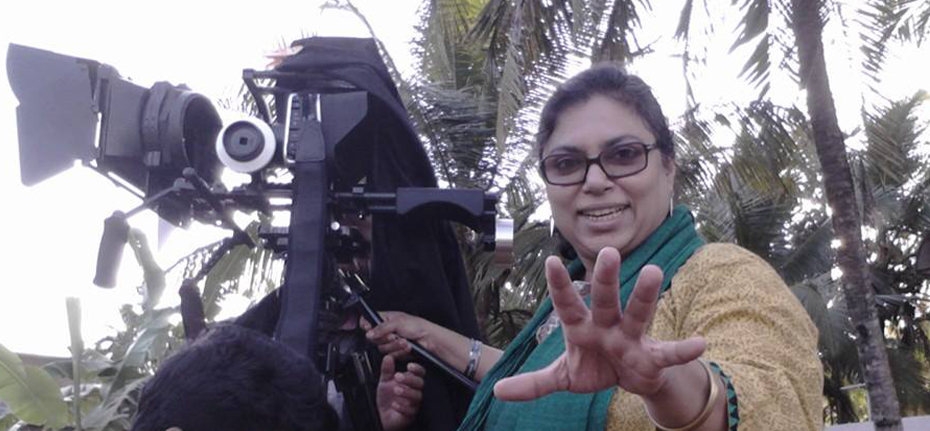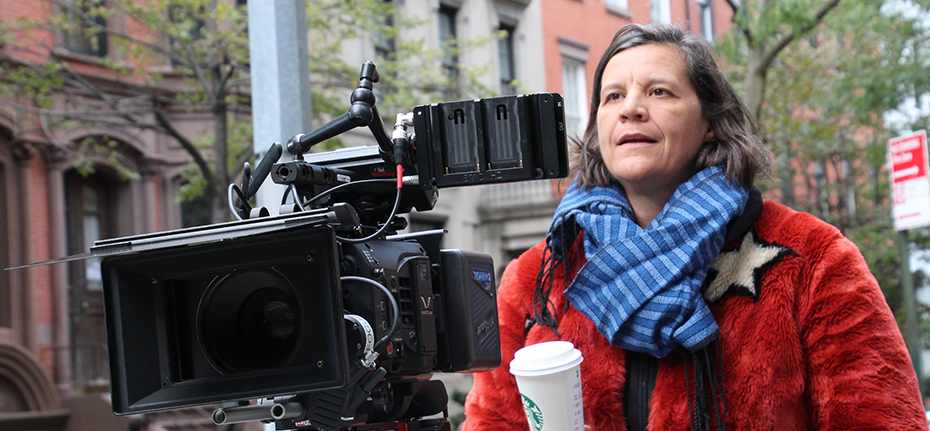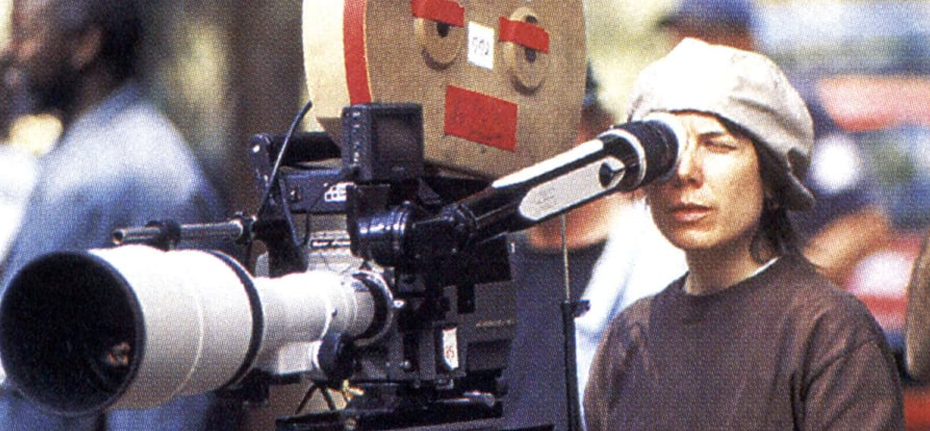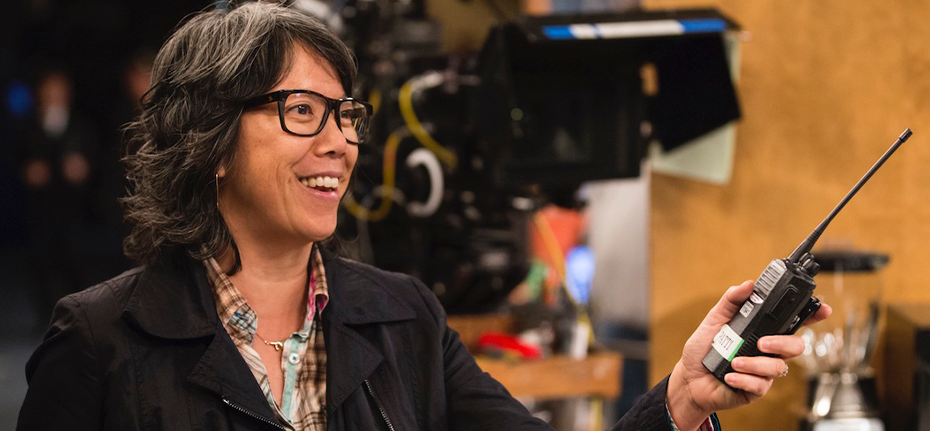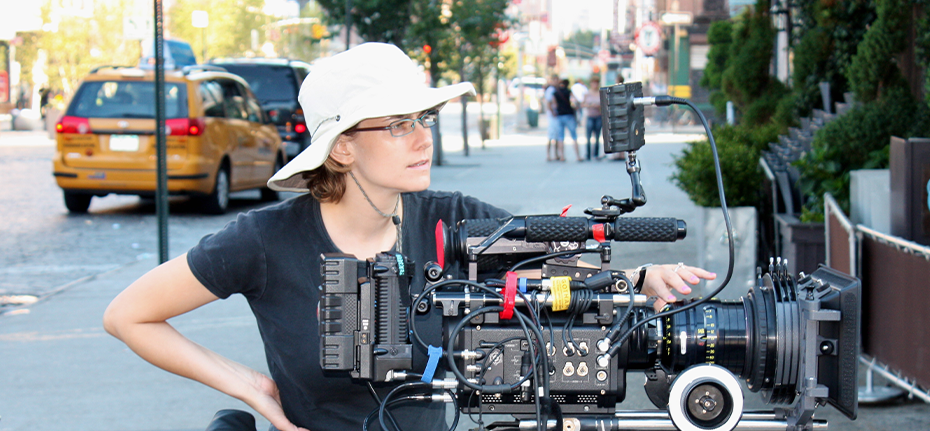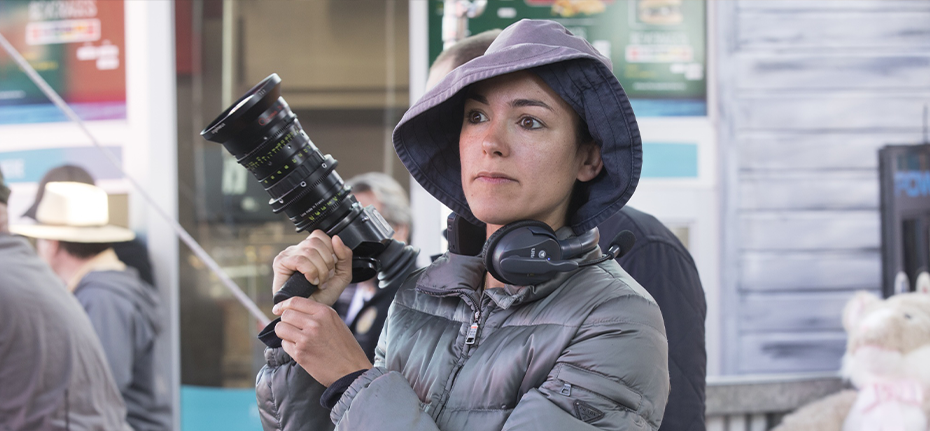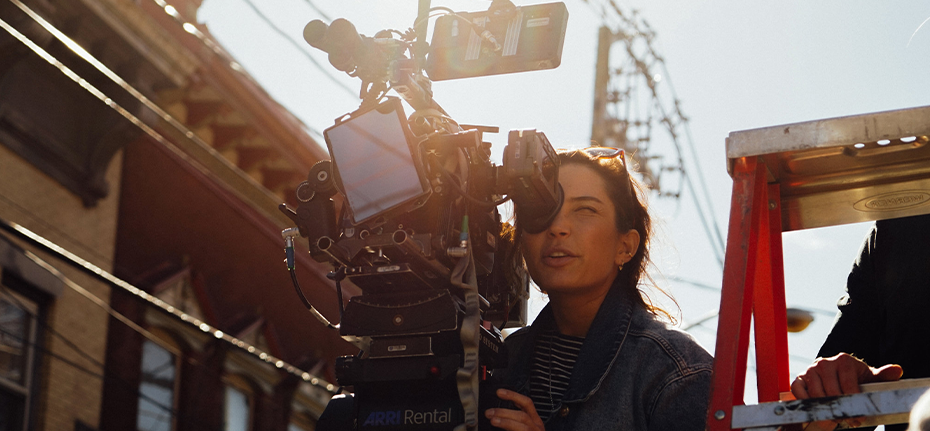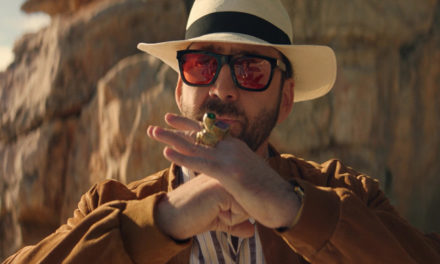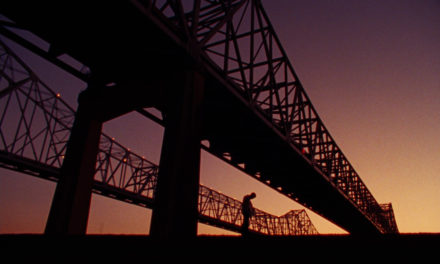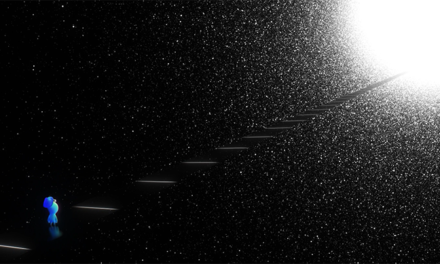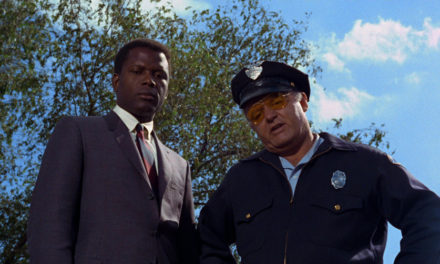03.28.23
THE WAY WE SEE: WOMEN DPs IN FILM AND TV (PART II)
In celebration of Women’s History Month, ShotDeck is thrilled to share a second weeks’ worth of female-identifying cinematographers that we think you should know about. Some of these DPs broke ground for other cinematographers to follow, some have lensed some of the most significant films and television shows of recent history, and some are among the rising stars of the industry today.
This list is mainly focused on cinematographers primarily working in film and television, and is by no means exhaustive. There are so many more amazing female-identifying DP’s working in film and TV, as well as commercials, fashion and music videos. We hope this list will serve as a launching pad for your inspiration to discover new artists, new styles and new possibilities in the craft of cinematography.
Amy Vincent is an American cinematographer and longtime pioneer for women in cinematography. She is one of the first women admitted into the American Society of Cinematographers. Vincent has lensed over a dozen films such as Eve’s Bayou, Hustle & Flow and the 2011 remake of Footloose.
Vincent was born in Boston and studied theater arts and film at UC Santa Cruz, before studying cinematography at AFI. Vincent entered the industry as an assistant editor in the archive department for Warner Bros., before being selected for an internship in the studio’s camera department. Vincent joined the International Cinematographer’s Guild and began working her way up through the camera department on various productions, loading, assisting and operating with DPs such as John Lindley, Robert Richardson and Bill Pope. Vincent shot her first feature, Animal Room (dir. Craig Singer) in 1995, and shot Tuesday Morning Ride and The Party Favor the same year.
Vincent’s breakout came from shooting the 1997 film Eve’s Bayou, directed by Kasi Lemmons. Hailed by critic Roger Ebert as the best film of 1997 and selected for preservation in the US National Film Registry by the Library of Congress in 2018, Eve’s Bayou premiered at the Toronto International Film Festival and grossed over $14 million from its $4 million budget, making it the most financially successful independent film of the year. Vincent’s cinematography contrasted the deep, rich blues and greens of the Louisiana landscape with high-contrast black-and-white photography. Combining these photographic approaches with symbols of Black mythology, she and Lemmons pushed the family drama-thriller to more mystical heights.
Since then, Vincent has shot everything from independent dramas like Hustle & Flow to studio comedies like Bewitched, and currently serves as the 1st Vice President for the ASC.
Alice Brooks is an American cinematographer who is best known for her collaborations with Jon M. Chu and Lin-Manuel Miranda. Her work includes In the Heights, Tick, Tick…Boom! and the upcoming adaptation of Wicked.
Growing up between Los Angeles and New York as the daughter of a playwright, Brooks was a child actor who performed in several television commercials and in a recurring skit on Late Night With David Letterman. She attended film school at USC, where she developed her interest in cinematography. She began shooting short films, web series and commercials, and began a long term collaboration with fellow USC alumnus Jon M. Chu. She and Chu worked together on the web series The LXD: The Legion of Extraordinary Dancers in 2011, before shooting Jem and the Holograms in 2015 (her second feature film). In 2019, Brooks shot the documentary The Remix: Hip Hop X Fashion (dir. Farah X & Lisa Cortes), which premiered at the Tribeca Film Festival and the Sidewalk Film Festival.
In 2021, Brooks re-teamed with Chu to shoot In the Heights, which was written by Lin-Manuel Miranda. She went on to shoot Tick, Tick… Boom! with Miranda, and earned a Satellite Award nomination for Best Cinematography. Brooks became a member of the ASC the same year, cementing her status as one of America’s leading cinematographers of major studio films.
Ari Wegner is an Australian cinematographer who became the second woman to ever be nominated for an Academy Award for Best Cinematography for The Power of the Dog.
Born in Melbourne, Wegner developed an interest in filmmaking in high school after seeing Jane Campion’s 1983 short film Passionless Moments. She studied film at the Victorian College of the Arts and began shooting short films and commercials, before working on the Australian drama series The Kettering Incident in 2016, for which she was nominated for a Best Cinematography in Television AACTA Award. The same year, she made her feature debut with Lady Macbeth (dir. William Oldroyd), for which she won a BIFA Award for Best Cinematography.
Wegner continued to work in both film and television, lensing the drama series Guerrilla as well as the anthology series The Girlfriend Experience in 2017. She also shot the horror comedy In Fabric in 2018 and the dark comedy Zola in 2020, for which she was nominated for an Independent Spirit Award.
In 2020 Wegner got the chance to collaborate with her high school inspiration, lensing Campion’s revisionist Western The Power of the Dog. Wegner and Campion spent over a year in pre-production, studying the landscape of 1920s Montana in forensic detail and discussing how best to translate that across to the South Island of New Zealand, where filming took place. Wegner and Campion would storyboard in the mornings and visit sets in the afternoons, building an intimate visual language that allowed them to work in close step with the actors and the characters they were portraying.
Wegner became the first woman to win the Feature Prize at the British Society of Cinematographers for her work on The Power of the Dog, and has since lensed the 2022 film The Wonder (dir. Sebastián Lelio), the 2023 film Eileen (dir. William Oldroyd), and recently wrapped production on an upcoming solo feature from director Ethan Coen.
Cybel Martin is an American cinematographer whose body of work includes American Horror Stories, Black as Night and The Rookie. She is currently a member of the International Cinematographers Guild.
Martin’s interest in cinematography was sparked by cinematographer and filmmaker Jessie Maple, as well as the work of more contemporary cinematographers. She pursued an MFA in Filmmaking from NYU and began DPing short film projects for classmates and other filmmakers around New York City. Her first feature film was the 2017 film Title VII directed by Nicole Franklin, and she also shot Ultimate Goal (dir. Dan Metcalfe) the same year.
Martin’s first credit as the lead DP of a network show came in 2019 with the CBS television series All Rise. She followed this up with the television series The Rookie, the feature film Queen of Glory (dir. Nana Mensah), as well as American Horror Stories and Black as Night.
More recently, Martin has lensed the television series A League of Their Own and Kindred, establishing her as a rising star in the field.
Babette Mangolte is a French cinematographer and educator who is best known for her collaborations with performance artists such as Marina Abramović and Yvonne Rainer and Belgian filmmaker Chantal Akerman.
Mangolte was born and raised in France and attended L’Ecole Nationale de la Photographie et de la Cinematographie, graduating in 1966. She credits the 1929 film Man with a Movie Camera (dir. Dziga Vertov) for inspiring her love of film and her desire to be a cinematographer. After leaving film school, she shot several shorts before collaborating with Yvonne Rainer on the 1972 film Lives of Performers, and then on the 1974 movie Film About a Woman Who….
Mangolte soon met Belgian filmmaker Chantal Akerman, and the pair collaborated on the 1975 film Jeanne Dielman, 23, quai du commerce, 1080 Bruxelles. Akerman and Mangolte approached shooting Jeanne Dielman with a strict formalist approach without ever giving the audience a sense of voyeurism into Jeanne’s life. They both considered framing to be a moral act of filmmaking – a way of shaping the audience’s perspective on what matters in the story and how to observe its characters. Influenced by the framing approach of Hollywood film stars such as John Wayne, the camera was always fixed and low with a frontal and symmetrical composition. Mangolte held shots for long takes to observe the meticulous rhythms of Jeanne’s day to day life in patient, painstaking detail. The film has no reverse shots, staying focussed on Jeanne. Mangolte’s challenge with lighting came from the apartment’s low ceilings, which only gave her 2 feet of clearance in shots where Jeanne is standing. Mangolte used lights that were very diffused and photo flooded, with all the electricity rigged in the ceiling so that it wouldn’t occupy any floorspace or risk appearing in the camera’s wide angle shots.
Mangolte and Akerman re-teamed the year after shooting Jeanne Dielman to film News from Home. Mangolte moved to America soon afterwards, shooting the iconic performance art documentary Seven Easy Pieces by Marina Abramović, and sharing her time between shooting and teaching at UC San Diego.
Hélène Louvart is a French cinematographer whose collaborators include Wim Wenders, Eliza Hittman, Maggie Gyllenhaal, Alice Rohrwacher and Léos Carax. She has shot over 50 fictional feature films, 49 short films and documentaries, 10 television series, as well as directed 4 short films herself. Her work has covered 7 different languages and has included films such as Happy as Lazzaro, Never Rarely Sometimes Always, and Murina.
Louvart graduated from Paris’s École nationale supérieure Louis-Lumière in 1985 and started shooting feature films almost immediately. Her stylistic flexibility and reputation for both being a close confidant of directors and an invisible presence on set attracted the attention of directors around the world.
Louvart’s work has ranged from the expressive 3D dance film Pina, directed by Wim Wenders (for which she The WIFTS Foundation Cinematographer Award in 2012, as well as the best 3D documentary award at Camerimage in 2013) to the intimate, gritty dramas Beach Rats and Never Rarely Sometimes Always with Eliza Hittman, for which she was nominated for Independent Spirit Awards. She won a Golden Camera at Cannes in 2021 for Murina and the Best Cinematography prize at the Lima Film Festival in 2019 for Invisible Life, and is one of the most-sought after independent cinematographers in the world today.
Kira Kelly is an American cinematographer, best known for her collaborations with Ava DuVernay. She is a two-time Emmy Award nominee and the first Black woman to have been invited into the American Society of Cinematographers.
Kelly majored in radio, television and film at Northwestern University and began her professional career in film as an electrician, working on a number of short films as a cinematographer as she started gaffing larger-scale projects. Her first feature film project as a DP was the 2008 film Were the World Mine (dir. Tom Gustafson), and after re-teaming with Gustafson on the 2012 film Mariachi Gringo, Kelly began work on the television series East Los High.
Kelly’s most well-known work as a DP has been with director Ava DuVernay, who hired her to shoot the documentary film 13th, which was the first documentary to ever open the New York Film Festival. Kelly was nominated for an Emmy Award for her work on the film. Kelly and DuVernay re-teamed for the television series Queen Sugar, which Kelly shot from 2017-19, and Kelly received her second Emmy nomination for her work on Insecure in 2020.
Kelly’s more recent work includes the limited series Self Made, Y: The Last Man and Echo.
Ashley Connor is an American cinematographer best known for her collaborations with Josephine Decker, Desiree Akhavan and Daniel Scheinert.
She struck up a creative relationship with Josephine Decker early into her career, lensing Butter on the Latch in 2013 and Thou Wast Mild and Lovely in 2014. Four years later, the pair shot Madeline’s Madeline, earning Connor an Independent Spirit Award nomination for Best Cinematography. The same year, Connor shot The Miseducation of Cameron Post (dir. Desiree Akhavan) and Mountain Rest (dir. Alex O. Eaton), establishing her as a rising star of the independent film scene in America.
Connor’s more recent work includes filming the final season of the television series Broad City, 2nd unit photography for Knives Out, and the feature films True Things (2021, dir. Harry Wootliff) and Sharp Stick (2023, dir. Lena Dunham).
Katelin Arizmendi is an American cinematographer whose body of work includes Swallow, Charm City Kings and Flint Strong.
Arizmendi was attracted to filmmaking from an early age and studied film at UC Santa Cruz, before realizing her interest in being a cinematographer at the Academy of Arts in San Francisco. Arizmendi stayed in San Francisco and started out largely as a camera assistant, eventually being asked to shoot a Levi’s commercial.
Arizmendi soon moved to Los Angeles where she decided she would only operate or DP projects from that point forward. A combination of short films and music video projects eventually led Arizmendi to shooting a music video for 30 Seconds to Mars, but Arizmendi continued to grow her body of work, eventually DPing her first feature film Cam in 2018, and then Swallow (dir. Carlo Mirabella-Davis) in 2019.
Arizmendi has since DPed films such as Charm City Kings (2020, dir. Angel Manuel Soto), Monica (2022, dir. Andrea Pallaoro) and National Anthem (2023, dir. Luke Gilford), while also shooting 2nd unit for Dune (2021, dir. Denis Villeneuve) and upcoming projects such as Flint Strong (dir. Rachel Morrison) and the highly anticipated final season of Succession.
FOWZIA FATHIMA
Fowzia Fathima is an Indian cinematographer and director, known for her work on films across Tamil, Hindi, English and Malayalam. Fathima has been a pioneer for female cinematographers in the Indian film industry and an educator to young filmmakers in the Indian industry.
Fathima attended the Film and Television Institute of India after completing an MA in art criticism at the Maharaja Sayajirao University of Baroda and a BA in Art History, Drawing and Painting at Stella Maris College in Chennai. She started out as an assistant to cinematographer, president of the Indian Society of Cinematographers and president of Qube Cinemas P.C. Sreeram, who has worked with filmmakers such as Mani Ratnam, Bharathan, R. Balki and Vikram Kumar on films such as Alaipaythey, Nayakan, Mouna Ragam and Cheeni Kum. Fowzia made her debut as a cinematographer on the 2002 film Mitr, My Friend, directed by Revathi and made by an all-female technical crew.
In 2003, Fathima was awarded Best Cinematographer by Iyal Isai Nadaga Mandram in Chennai for her work on Ivan (dir. R. Parthipan). She won the award again in 2006 for her work on Uyir (dir. Samy). She founded the Indian Women Cinematographer’s Collective (IWCC) alongside Priya Seth and Savita Singh, and has been a leading figure for the advancement of women behind the camera in the Indian film industry.
Kirsten Johnson is an American documentary cinematographer and director. Johnson entered the filmmaking world after graduating from Brown University in 1987 with a BA in Fine Arts and Literature. She began working in West Africa in both fiction and nonfiction films. Johnson then studied film in France before working as the principal cameraperson for documentary films, shooting over 40 films in total. Some of Johnson’s credits as a cinematographer include Darfur Now (2006, dir. Ted Braun), Pray the Devil Back to Hell (2008, dir. Gini Reticker), The Oath and Citizenfour (2010 & 2014, both dir. by Laura Poitras).
Johnson has directed 6 films of her own. In 2016, she directed Cameraperson, a collage-style memoir of the footage she had captured over her years as a cinematographer, exploring the ethics and practical realities of documentary filmmaking. Cameraperson premiered at the Sundance film festival and won the Grand Jury Award at Sheffield Doc/Fest. In 2020, Johnson directed her second feature, Dick Johnson Is Dead, which premiered at the Sundance Film Festival and was recognized for its innovations in exploring human mortality as a dedication to her father.
Johnson continues to work as both a director and a cinematographer on documentary films, and is today widely considered one of the most experienced and influential documentary cinematographers in the world.
Lisa Rinzler is an American cinematographer and camera operator whose collaborators include Wim Wenders, Martin Scorsese, the Hughes Brothers, Carol Dysinger and Tamra Davis. A subject of the documentary Visions of Light, which looked back on the history of cinematography, Rinzler has received two Independent Spirit Awards for Best Cinematography, a Primetime Emmy Award, and has lensed films that have won Emmy and Academy Awards.
Rinzler was born in New Jersey and initially studied painting at the Pratt Institute in New York before moving to NYU to study filmmaking. After graduating, Rinzler began shooting short films, notably twice for Robert Mapplethorpe and once with Wim Wenders. Rinzler also worked as an assistant for Nancy Schreiber and Fred Murphy, and shot documentary films and music videos.
In 1991, Rinzler shot the film Guncrazy (dir. Tamra Davis), before lensing Menace II Society with the Hughes brothers the next year. For her work on Menace II Society, Rinzler won an Independent Spirit Award for Best Cinematography. Rinzler and the Hughes brothers re-teamed two years later on their crime film Dead Presidents.
Rinzler has extensive experience in documentary filmmaking, winning an Emmy for Martin Scorsese Presents the Blues in 2004 and earning a nomination for the award in 2012 for Mea Maxima Culpa: Silence in the House of God (dir. Alex Gibney). More recently, Rinzler worked with documentary filmmaker Carol Dysinger on Learning to Skateboard in a Warzone (If You’re a Girl) in 2019, which won the Academy Award for Best Documentary Short.
PATTI LEE
Patti Lee is a Chinese-American cinematographer and the first woman to ever be nominated for a Primetime Emmy Award for Outstanding Cinematography in a Multi-Camera series.
Lee studied filmmaking at the UCLA School of Theater, Film and Television, where films such as Bicycle Thieves, M and Le Samourai had a major influence on her. After graduating, Lee joined the lighting teams of cinematographers such as Kees van Oostrum, Newton Thomas Sigel, Guillermo Navarro and Russ Alsobrook, gaining experience on large-scale productions. At the same time, Lee gaffed television projects and shot lower-budget films. This included Independent Spirit Award nominee, Bunny.
Lee’s first large-scale project as a cinematographer came on The Bernie Mac Show, and since then, she has lensed multiple single- and multi-camera television series, earning Emmy nominations for her work on Bob Hearts Abishola and Superior Donuts. Lee has also produced the Emmy-nominated feature documentary A Small Act. Lee joined the ASC in 2018, and in 2022, was presented the ASC Mentor Award by the International Cinematographers Guild for her work shepherding emerging DPs into the film business.
Rachel Morrison is an American cinematographer and director. She is the first woman to ever be nominated for an Academy Award for Best Cinematography, the first woman to ever be nominated by the ASC for Best Feature Film, and the first woman to lens a Marvel superhero film.
Morrison studied film and photography at NYU before concentrating in cinematography at AFI. After graduating in 2006, she began her career in television, largely shooting network shows. Her work on the 2005 television documentary Rikers High earned her an Emmy nomination. Morrison worked on the television series The Hills for several years, before shooting a string of films that earned attention at the Sundance Film Festival, including Tim and Eric’s Billion Dollar Movie (2012, dir. Tim & Eric), Fruitvale Station (2013, dir. Ryan Coogler) and Dope (2015, dir. Rick Famuyiwa).
In 2017, Morrison became the first woman to win the New York Film Critics Circle Award for Best Cinematographer, the first woman nominated in the ASC’s Feature Film category, and the first woman nominated for an Academy Award for Best Cinematography for her work on Mudbound (dir. Dee Rees). The next year, she became the first female DP of a Marvel superhero film on Black Panther (dir. Ryan Coogler). She has since directed episodes of The Mandalorian and is currently working on her feature directorial debut, Flint Strong.
Jendra Jarnagin is an American cinematographer whose work over 25 years has covered film, television, commercials, music videos and virtual reality exhibits.
Jarnagin attended NYU to study filmmaking before beginning in the film industry in the lighting department, working as a gaffer and electrician on projects such as Sex & the City, Law & Order,The Sopranos, Analyze That, and Vanilla Sky, while shooting commercials, short films and music videos. Her first feature film as a DP was Split Ends (2009, dir. Dorothy Lyman), and she has since shot films such as Entangled (2019, dir. Milena Lurie), Asking for It (2021, dir. Eamon O’Rourke) and the television series East New York.
Jarnagin is considered a pioneer of digital cinematography and has spoken about the craft and technology of digital capture at CineGear Expo, NAB, Sundance, Camerimage International Festival of Cinematography and the American Cinematographer podcast.
Paula Huidobro is a Mexican cinematographer whose credits across film and television include Shelter, Tallulah, Oh Lucy! and Coda.
Huidobro attended the London International Film School before studying cinematography at AFI. Her feature film debut was the 2008 film Gardens of the Night (dir. Damian Harris), which was nominated for the Golden Bear at the Berlin International Film Festival. She went on to shoot Paul Bettany’s directorial debut Shelter, Tallulah (2016, dir. Sian Heder), which was nominated for the Grand Jury Prize at the Sundance Film Festival, and Oh Lucy! (2017, dir. Atsuko Hirayanagi).
Huidobro’s first television work was seasons 1 and 2 of Barry, and she also shot episodes of Guess Who Died, Dave, Pam & Tommy, Weird City, Little America, Fargo and Insecure. In 2021, she re-teamed with Heder to work on Coda, which won the Academy Award for Best Film.
Reed Morano is an American cinematographer and director. She is the first woman to win both an Emmy and Directors Guild Award in the same year for directing a drama series. In 2013, Morano became the youngest member of the ASC, and one of only 14 women in the union at the time.
Morano was born in Omaha, Nebraska, and after developing an interest in filmmaking as a child, attended film school at NYU, where she later taught as an adjunct cinematography professor, instructing the program’s first Advanced Television class. Her first feature film was 2007’s Off the Grid: Life on the Mesa (dir. Jeremy & Randy Stulberg), which premiered at the Slamdance Film Festival. Morano went on to shoot a string of critically acclaimed independent features, such as Frozen River (2008, dir. Courtney Hunt), which was nominated for an Independent Spirit Award for Best Feature, Little Birds (2011, dir. Elgin James), which was named a Top Ten Independent Film by the National Board of Review, and the documentary Shut Up and Play the Hits (2012, dir. Dylan Southern & Will Lovelace), which premiered at the Sundance Film Festival.
Morano shot and directed her first feature film, Meadowland, in 2016, winning an Independent Spirit Award for Best Cinematography, and also directed and shot I Think We’re Alone Now two years later, winning the Special Jury Prize at the Sundance Film Festival. Her credits as a director include The Rhythm Section and The Handmaid’s Tale (for which she won an Emmy and DGA award in the same year), and her more recent work as a DP ranges from Beyoncé’s Lemonade to Martin Scorsese’s Vinyl.
And that’s all for now! As we mentioned before, this list is by no means exhaustive, there are so many other folks out there doing genuinely inspiring work both in film and television as well as commercials, music videos, fashion and beyond. We appreciate you taking the time to learn a little about this incredible group of artists changing the craft of cinematography and shifting the way we see.
SOURCES
NYT: Ari Wegner: A Cinematographer Who Knows Actors Down to the Eyelash
Musicbed: Katelin Arizmendi’s Journey from Camera Assistant to DP
Elena Rossini: 100 Days of Women in Film: Cybel Martin
Eliza Hittman & Cinematographer Hélène Louvart
FF2 Media: Hélène Louvart Captures Beautiful Moments Big and Small
Shoot: Patti Lee to receive ASC Mentor honor at ICS’s Emerging Cinematographer Awards
ASC: ASC Welcomes Patti Lee as a New Active Member

